Planning a holiday and unsure of which visa you need? This simple guide to the different types of visas will help you understand what they are and help you figure out which one is right for you so you can make those travel dreams come true.

What is a visa?
It is an official document issued by the embassy or consulate of a particular country that grants you permission to travel to that specific country. You will need a valid passport to apply for a visa.
Need to renew your old passport? Find out how with this guide to a South African passport renewal.
Visas are required by most countries and are either obtained before travelling or issued upon arrival (e.g. Maldives, Cambodia, and Madagascar).
Find out more about visa-free countries for South Africans.
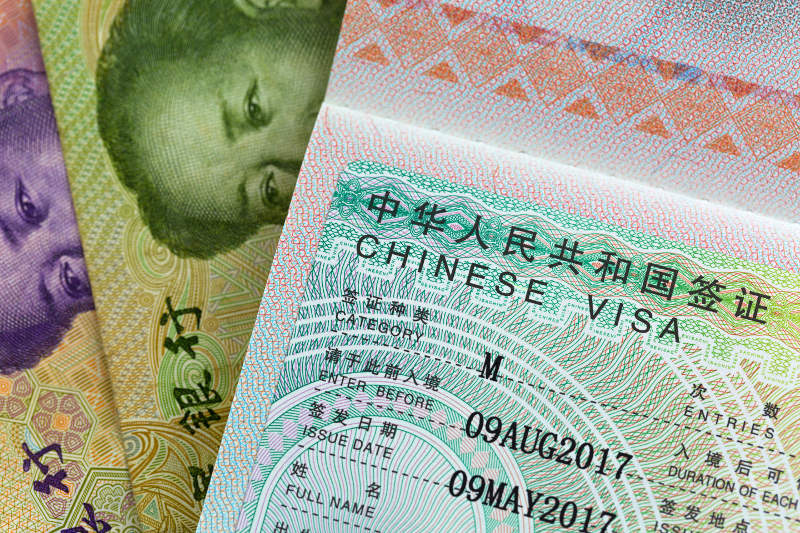
What does a visa look like?
Visas are one-page printouts that are glued onto a blank page in your passport. These are unique to each country and usually include details such as your name, place of birth, the reason for travel, passport number, expiration date, and sometimes a photograph.
Upon entering a country your passport will be stamped with an entry stamp e.g. Canada and the United States), although some countries (e.g. Hong Kong) issue landing slips that are stapled to a page in your passport.

What is an eVisa?
Unlike a traditional visa, which is glued to a page in your passport, the eVisa (electronic visa) is a digital visa that is stored in a database. Applications are typically done online, and the visa is linked to your passport number. You will receive a visa approval letter, which can be presented while travelling.
Electronic visas are only offered by certain countries (e.g. Sri Lanka). You will need to check the embassy or consulate website of your chosen country to see if this option is available.
SOME IMPORTANT THINGS TO REMEMBER
- In some cases, you will need to book your flights before applying for a visa.
- Entry into the country is at the discretion of the airport authorities at your destination. It is important that you ensure you have the correct visa before embarking on your journey and have all the necessary documents on hand. Find out more about our Visa Denied Service.
- You should ensure your passport is valid for at least six months (or three months for a Schengen Visa) beyond your date of return.
- Ensure you have two blank pages available for entry stamps.
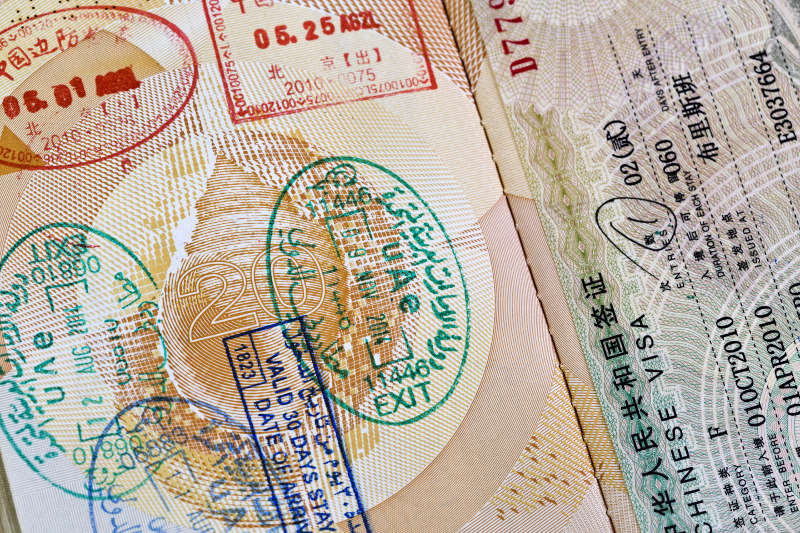
What are visa categories?
Visas are divided into two main visa categories: short-term and long-term.
Long-term visas allow you to stay in a particular country for an extended period of time (e.g. Immediate Relative & Family Sponsored visas). In some cases, these eventually allow you to become a citizen of that country.
Short-term visas allow you to stay in a particular country for a limited period (typically about 90 days) and do not allow you to become a citizen of that country (e.g. Travel and Business visas). The requirements for these can vary widely.
How many different types of visas are there?
There are about 185 different types of visas around the world.
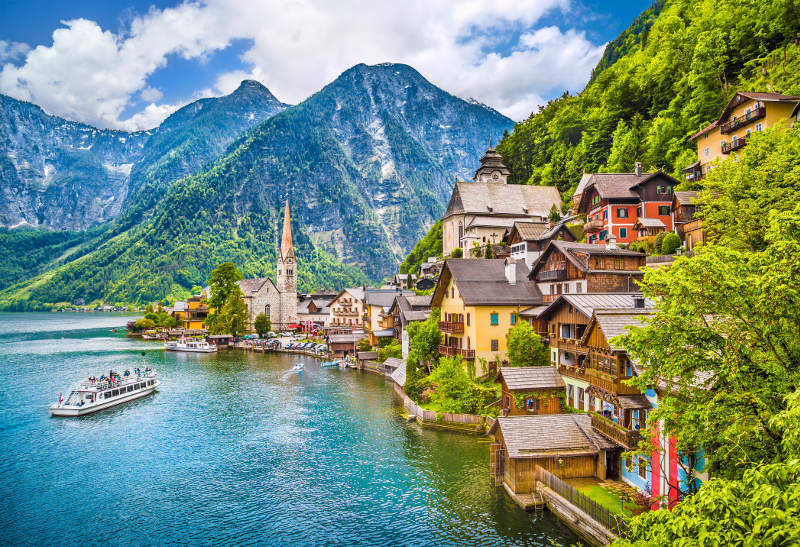
What are the different types of visas?
Some of the most popular visas amongst South Africans include:
- Transit visa – a transit visa allows you to pass through another country on route to your destination country. You will usually need one if you will be in the transit country for more than a few hours. In some countries, you may need one if you will be going through immigration control to collect your luggage or catch a connecting flight.
- Tourist visa – a tourist visa (also known as a travel visa) allows you to travel to a foreign country for a set amount of time. These visas do not entitle you to work or participate in any business activities while you are in the country.
- Work visa – a work visa allows you to take on employment while in the country. These visas are usually valid for the duration of the employment contract or a period not exceeding five years. There are several types of visas, including working holiday visas and professional speciality
- Business visa – a business visa allows you to conduct business and engage in business activities in another country. These visas are granted to individuals who are attending a business conference or travelling to another country to do business with another company. You will need to show that you are not receiving any income from the country.
- Student visa – a student visa allows you to pursue academic studies in another country. These visas allow you to enrol at a college, university, or academic programme and stay in that country for the duration of your course. You are also usually allowed to stay for a short period (anything from 60 days to four months) after completing your studies.
- Spousal visa – a spousal visa allows you to visit your spouse if you are both from different countries. These visas entitle you to visit for two years and apply for residency after five years (although the rules and requirements vary from country to country).
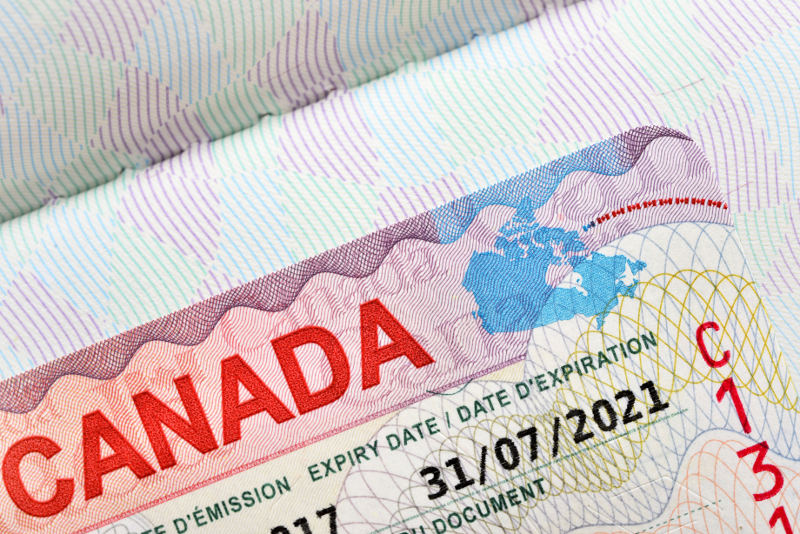
Visas also range from media/journalist visas, medical treatment visas and religious worker visas to entertainer visas and exchange visas that cover au pairs, teachers and scholars.
There are also a number of special visas that are unique to certain countries:
- The Escort Visa allows a man to accompany an unmarried woman while she conducts business in Saudi Arabia.
- The Non-Immigrant “O-A” Visa allows applicants aged 50 years and over to live in Thailand for one year, but prohibits them from working during their stay.
The five most commonly issued visas are: tourist visas, immigration and naturalisation visas, student visas, business and work visas, and transit visas.

What is the difference between a single entry and multiple entry visa?
A single-entry visa allows you to enter a specific country just once (e.g. you are attending a wedding in Australia and have no intention of returning in the near future), while a multiple-entry allows you to enter multiple times (e.g. a 10-year U.S. visa may be issued to a business person who frequently attends meetings and conferences in the country).
Some countries automatically consider applicants for multiple-entry visas (e.g. Canada), while others require applicants to specify which visa they need on their application and provide documents to support their choice.
Note: Whether you qualify for a multiple or single-entry visa is at the discretion of the visa officer.
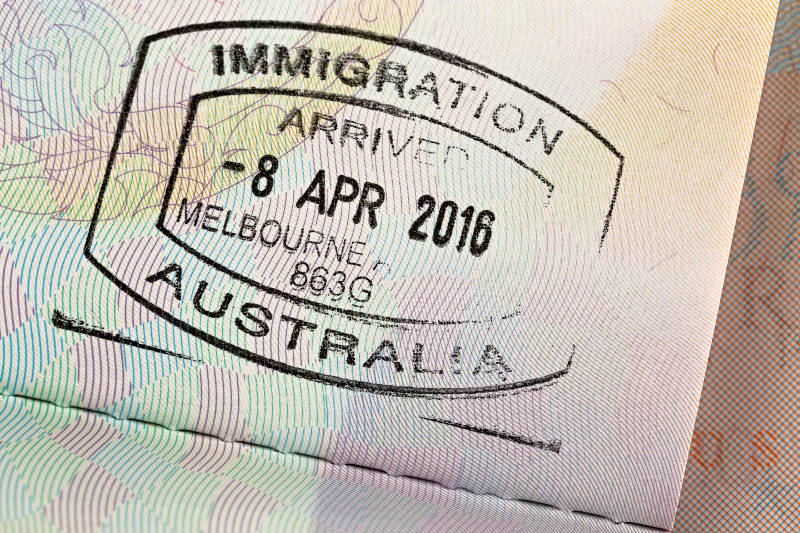
While this guide aims to give you a better understanding of the different types of visas, each country has its own requirements and processes for obtaining them, so it is important to research the visa rules for your chosen country before you book your flights and set off on your journey.
For more information about a particular visa, check out these detailed guides to some of the most popular visas amongst South Africans.
All information on this page was correct at the time of publishing and may change at any time without prior notice. Travelstart will not be held liable for loss or inconvenience resulting from the use of information from this website.
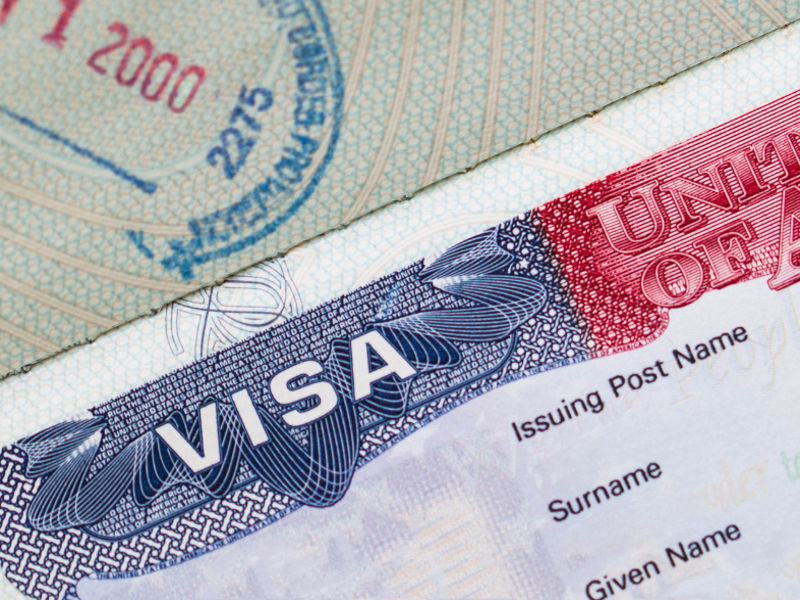






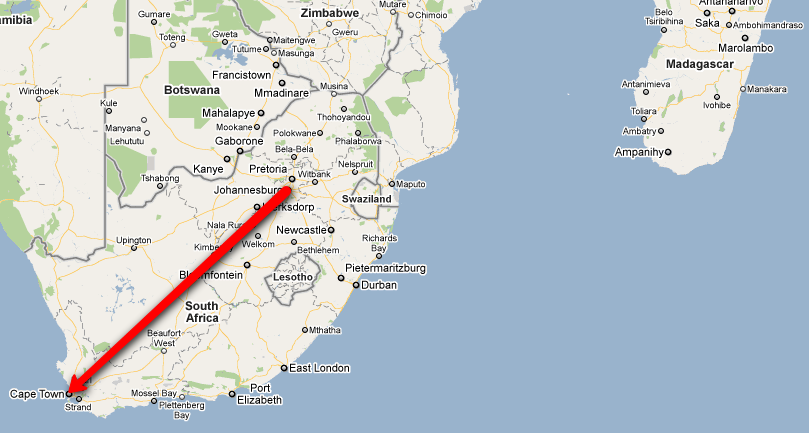
Can you please assist me I’ve tried contacting the embassy but no joy.i have an American visa expiring 2020 Nov. However my SA passport expires 2019 Nov. Is the US Visa still valid in the old passport can I still use it
Hi there,
To my knowledge one is able to travel with both passports. Your expired passport with your valid visa. And your new/valid passport. However you will need to contact the Embassy direct to get the most up to date info, as this could have changed.
Please see below contact details of the US Consulate in Joburg, Cape Town and Durban
US Consulate: Johannesburg
Telephone No : 27 011 290 3000
Visa call centre : 27 087 550 2160
US Consulate: Durban
Telephone No : 27 031 305 7600
Call Centre : 27 087 550 2160
US Consulate: Cape Town
Telephone No : 27 021 702 7300 between 11:00 – 12:00
Call centre : 27 087 550 2160
Hi do you assist with Umrah visa to suadia Arabia ( Mecca and Medina. We want to travel with our 4 kid’s. KIndly advise.
Thank you
Hi there,
Thanks for contacting us.
I’m afraid we do not specialise in visa applications. For this you will need to contact the Embassy direct. They will be able to assist in answering any questions you might have and advise on the cost, correct procedures to follow when applying for a visa and what documents are required.
Hi
we planning to go on a middle east cruise which stops in Bahrain, Dubai, Doha and Muscat.
DO i need visas for each of the countries?
Also do you know the costs of the visas?
Hi Fatima,
Thanks for getting in touch. Below are contact details of the Embassies and official visa handling agencies where you would need to apply for your visa’s. Please contact them direct, they will be able to advise on the correct procedures to follow, what documents would be required and the cost involved.
Bahrain: Evisa are available for South African passport holders:(Tourists only) http://www.evisa.gov.bh/
Dubai: UAE VISAS SA:
EMIRATES AIRLINES – contact VFS Global directly on 011 783 1941, 021 423 6573 and 031 584 7153 this applies only to Emirates Airlines passengers. VFS Global, also known as DVPC- Dubai Visa Processing Centre, will be processing all visas for passengers travelling to Dubai on Emirates Airlines. If the passenger is flying Emirates Airlines only & the exit & entry is from Dubai Airport only, the passenger can apply through VFS Global (Pty) – Please click here for Emirates (EK) visa details
For cruises, 2 single entry visas are required, refer to VFS Global (Pty) for more information.
http://www.dubaivisa.net/southafrica/
Doha: South African passport holders can obtain a visa for a stay of up to 30 days through the Embassy of the State of Qatar.
Embassy of the State of Qatar
Telephone No : (012) 452 1700 / 11/ 13
Fax No : (012) 452 1710
Street Address : 1077 Justice Mahomed St, Waterkloof, Pretoria
Oman: SA passport holders must apply online for a e-visa. https://www.ievisa.com/country/oman
Embassy of the Sultanate of Oman
Telephone No : (012) 362 2766/ 3114
Fax No : (012) 362 6258
Street Address : 11 Anderson Street, Brooklyn, Pretoria
Postal Address : P.O. Box 2650, Brooklyn 0075
Email Address : emb-oman@telkomsa.net
Hi if I was planning to go and study in Los Angeles, California for a good three years and possibly stay there. What type of visa should I have that will allow me to study and become a full time citizen there.
Hi Hazel,
Please contact the Embassy or official visa handling agency direct.
They will be able to advise on what visa you would need to apply for, the documents that would be required when applying and the cost.
US Consulate: Johannesburg
Telephone No : 27 011 290 3000
Visa call centre : 27 087 550 2160
Fax No : 27 011 884 0396
Street Address : 1 Sandton Drive, Sandhurst (opp Sandton City Mall)
Postal Address : P.O. Box 787197, Sandton, 2146
Email Address : consularjohannesburg@state.gov
Website Address :
https://ais.usvisa-info.com/en-ZA/niv
Good day
I’m planning on going to Europe in October. I’m not sure what the visa requirements are. I last went to Europe in 2011 then I had to get separate visas for each of European countries i wanted to go to.
A friend of mine just came back from a cruise of 7 countries she said she only required one visa and that was for the country she stayed the longest in.
I would like to travel by Train from Portugal to Spain to France to Switzerland to Italy and then to Greece. my longest stay will be in Spain. I might need to take one or two flights instead of going by train.
Hi Gerhard,
Thanks for getting in touch.
You will only need to apply for one Schengen visa which will cover you for all countries within the Schengen State. If you are staying longest in Spain you will need to apply through BLS the official visa handling agency for Spain.
BLS: Spain Visa Application Centre (Cape Town)
Telephone No : 021 003 8050
Street Address : 1st Floor, Block B, North Park, Black River Park, 2 Fir Street, Observatory, Western Cape, Cape Town, 7925
Email : info.cpt@blshelpline.com
Website : https://sa.blsspainvisa.com/
BLS: Spain Visa Application Centre (Pretoria)
Telephone No : 012 007 0030
Street Address : Regus Lakeview, Ground Floor, Lakeview Building 1277 Mike Crawford Avenue, Centurion, 0157 (Use entrance 10 at Mall)
Email : info.pry@blshelpline.com
Website : https://sa.blsspainvisa.com/
They will be able to advise what documents are required when applying, the correct procedures to follow and the cost.
Good day
I am planning for a Visit / Vacation to Canada based on an invitation from a cousin.
What are the requirements for me and my husband to visit Canada for 11 days?
We are based in South Africa with ZWE passports
regards,
Hi there,
Thanks for getting in touch.
I’m afraid we do not specialise in visa related queries for foreign passport holders. Please contact the Embassy direct or official visa handling agency. They will be able to advise what the cost would be, correct procedures to follow and what documentation will be required when applying for a visa.
Hi
I’m a south African and would like to transit from Israel to Ireland,is it possible?
Hi Ingrid,
Thanks for getting in touch.
If you are travelling on a South African passport and transiting in Israel it shows you do not need a transit visa.
However this information could since have changed and we recommend you contact the Embassy direct for the most up to date information.
Hi do you do Visa on arrival to Nigeria
Hi there,
Thanks for getting in touch.
If you are a South African passport holder you will need to apply for a visa before you depart.
Visa applications can be made through the official visa handling agency: VFS. They will be able to advise on the correct procedures to follow when applying for a visa, what documents are required as well as the cost.
VFS Nigeria Visa Application Centre
Telephone No : (012) 425 3016
Email : info.ngsa@thebezglobalresourcesltd.com
Website : http://www.thebezglobalresourcesltd.com/Nigeria/Southafrica
Street Address : Cherry Lane Office Park, 1st Floor, 114 Fehrsen Street, Nieuw Muckleneuk Brooklyn, Pretoria
Hello 🙂
I would like to plan a trip for my parents and I to France and the UK. I will be relocating to the UK to study so I will already have a student visa.
What visa should my parents get? Do we need to make 2 separate applications for a Schengen and UK visa?
Hi there,
Thanks for getting in touch.
Your parents will need to apply for a Schengen visa which will cover them while in France and then a seperate visa for the UK as it does not part of the Schengen state.
Hi I plan to travel from south Africa to marakech Morocco. There are 2 stops on the flight Paris and amsterdam. one is 1.5 hrs the other 5 hrs. Do I need a scengen transit Visa. If so which embassy do I apply Netherlands or France
regards
Jacqui
Hi Jacqui,
Thanks for getting in touch.
Yes you will require a Schengen visa when transiting through 2 Schengen states. You would need to apply for a visa of the country you are first entering. So your first entry point into the EU is France, then you would the visa handling agency for France.
Hi, I am planning on going to Canada and New York for a holiday next year. I am only going for two weeks. Would I have to get both a Canadian and U.S visa or just either one of them?
Thanks
Hi Aarifah,
Thanks for contacting us.
You would need to apply for 2 separate visa’s should you wish to visit both the USA and Canada.
I have a south african passport. If my connections are CPT – LHR- MAD- SJU. Would I need a transit visa for Madrid. I have a valid USA visa.
Hi Hildur,
Thanks for getting in touch.
If you are only transiting through one Schengen state you would not require a Schengen visa for Madrid. However visa rules change so we ask that you contact the Spanish Embassy for the most up to date information.
Hi there
I applied for a Norway visa as we going there for 14 days and got the single entry schengan visa however I am flying with AF there with a short layover in Paris and then when I come back from Norway I am flying KLM with a short layover in Amsterdam – will the single entry visa be sufficient?
Hi there,
Thanks for getting in touch.
As you are not leaving the EU this would not be a problem. France, Netherlands and Norway are all part of the EU.
However please contact the Embassy direct to get the most up to date information.
I am South African flying from Canada( with valid visa to sa via Munich, do I need a transit visa to go to the hotel for my layover. also have valid us visa
Hi Rudi,
If you are travelling to Munich and passing through immigration you would need to apply for a visa.
However we do recommend you contact the Embassy or official visa handling agency direct. They will be able to provide you with the most up to date information.